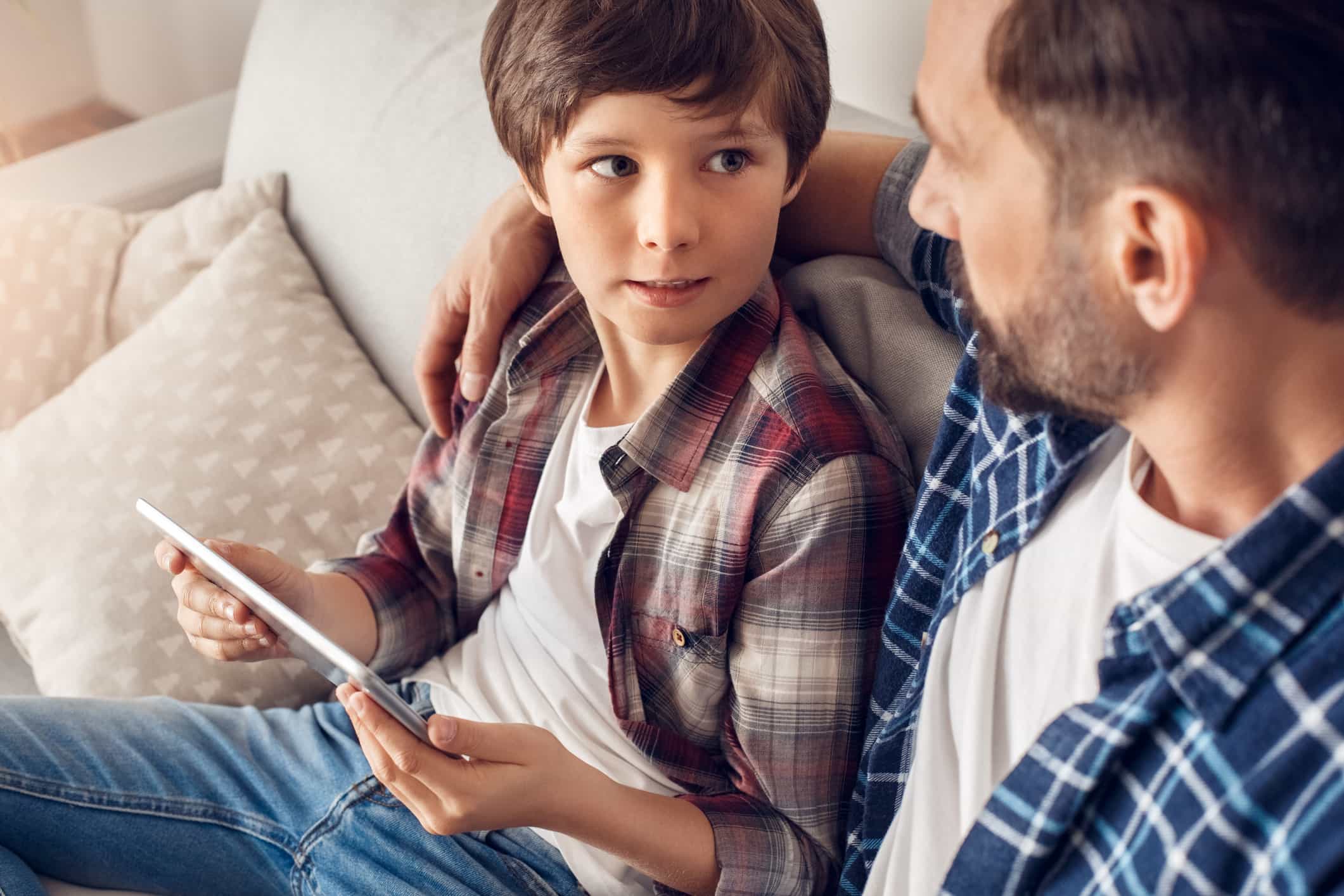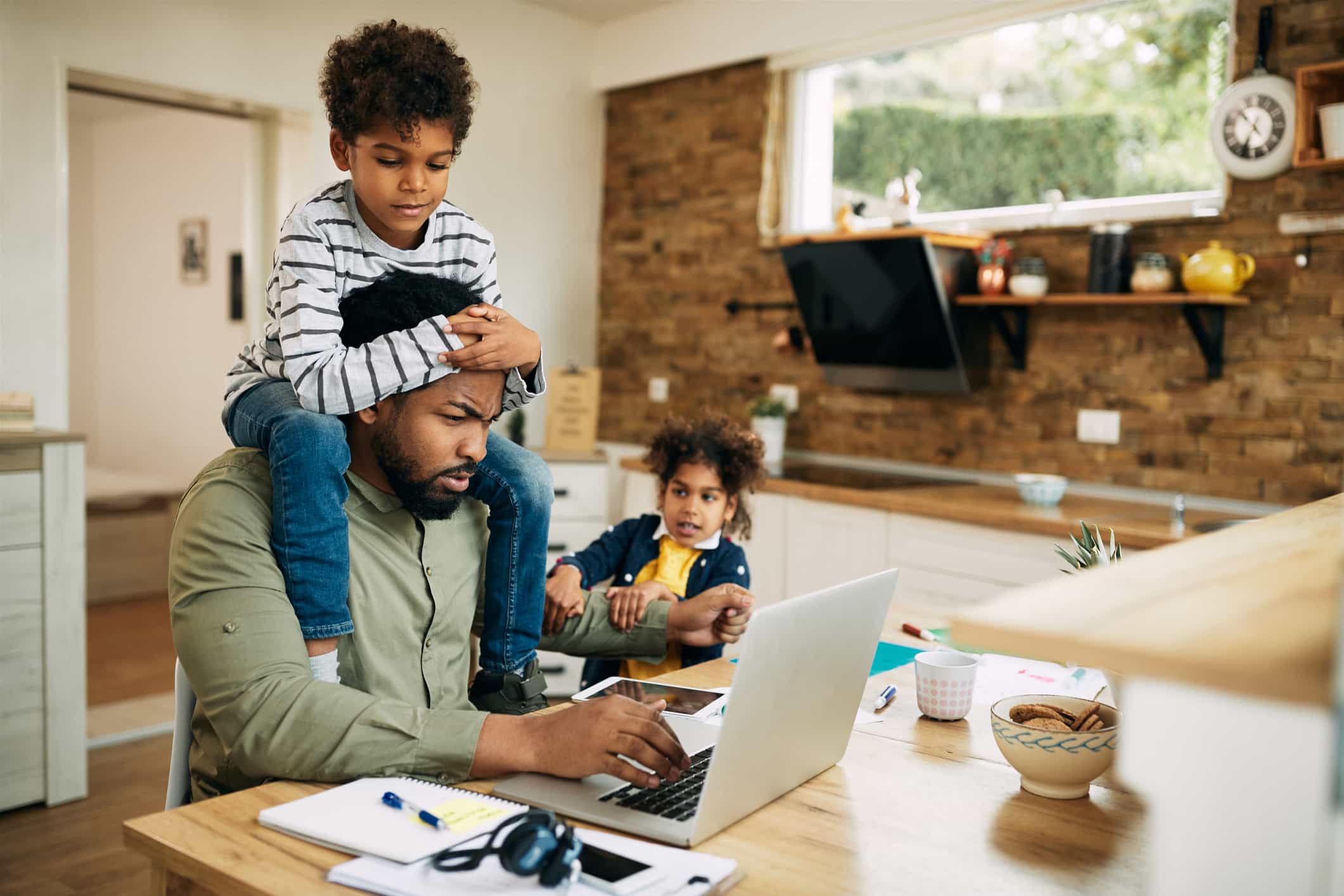Managing Your Family’s Digital Consumption

As we start to re-emerge (once again!) from lockdown and back into the real world, it’s important to reflect on our relationship with technology, and figure out how that will look as we move towards a hybrid working model. Here, Chris Flack from UnPlug explains why it’s important for parents to ‘disconnect’ from their devices as much as possible, in order to encourage healthy behaviours and habits in their children.
A Speedy Digital Transformation
Whether we were ready for it or not, Covid forced us to quickly adapt to a whole new way of life. Many organisations pivoted to a ‘work from home’ model, and – for the most part – were successful. “We basically saw two years of digital transformation take place in one month”, says Chris. “Unsurprisingly, our tech consumption levels have gone through the roof.” Voice and video calls have doubled, while IM traffic is up 65%. Back-to-back Zoom or Teams meetings are also big contributors to tech overload. “Before, even if you had 30 seconds between meetings, you might have looked out the window. Today, we may not look away from the screen all day.”
The Trouble with Multi-Screening
Which leads Chris to his next point, around our habit of multi-screening. For both adults and kids, this is incredibly taxing on the brain. “It’s one of the biggest drivers for our inability to focus or recharge, and why kids find it difficult to concentrate”, he explains. “For children, there’s a bit of neuroplasticity, so they can develop a better ability to cope with it. But at the same time, it’s still the human condition that we can only single process. We’re not natural multi-taskers!”

Cultivating Awareness
The biggest piece of advice Chris has for parents is to be aware of their own behaviour. “There's a real struggle for kids around ‘psychological detachment’ when parents are working from home”, he says. "Kids assume that whenever you’re on a screen, you’re doing what they do – browsing TikTok or watching cartoons”. “It’s important therefore that they understand you’re working. “Boundaries have merged, so we need those little ‘ceremonies’ that signify a break between work and home. Try putting on a tie, scarf or jacket – anything that says to your child, ‘I’m working now’. It will let them know that this is work / quiet time.”
More Tips for Parents
What about those times when Mum or Dad ARE browsing TikTok, or maybe 'quickly’ checking a work email during family time? “A child will see you scrolling, and realise the phone is more important than them”, says Chris. “And naturally, they’re going to want it for themselves!” Dealing with this issue comes back to the idea of awareness. When you feel the urge to pick up the phone, ask yourself – do you really need to, or is it purely habitual? For parents of older children who are establishing their own online behaviours, Chris advises finding some shared interests. “If your child is interested in something techy, try it yourself. If it’s a game, play it. If they want to set up a TikTok account, create a joint one. Otherwise a lot of parents will see a lot of negative clickbait about tech, and panic. When you understand it, it helps.”

Sound good? Here’s 6 simple tips to help you stay in control of the scroll:
1. Standing Desk
Investing in a standing desk (or improvising at your kitchen counter or with an ironing board) will encourage you to keep moving.
2. Change Your Mode
Utilise your phone’s various modes. Try setting it to ‘do not disturb’ at night, switching it back online after breakfast.
3. Limit Your Time Online
If you tend to fall down the scrolling rabbit hole, set a timer. Allow yourself 15 or 20 minutes to catch up on news and reply to messages, then put the phone down again.
4. Block Distracting Websites
One option is obviously to unfollow certain pages, but you can also install apps that block selected websites. Check out BlockSite and Freedom.
5. Hand Over Your Phone!
If you tend to jump on Instagram when you finish work, try handing the phone to your housemate or partner, and head straight out the door for a walk.
6. Limit Blue Light
We know blue light can interrupt melatonin and our brain’s connection to winding down. If you’re doing something like working late in the evening, consider a pair of blue light reducing glasses.